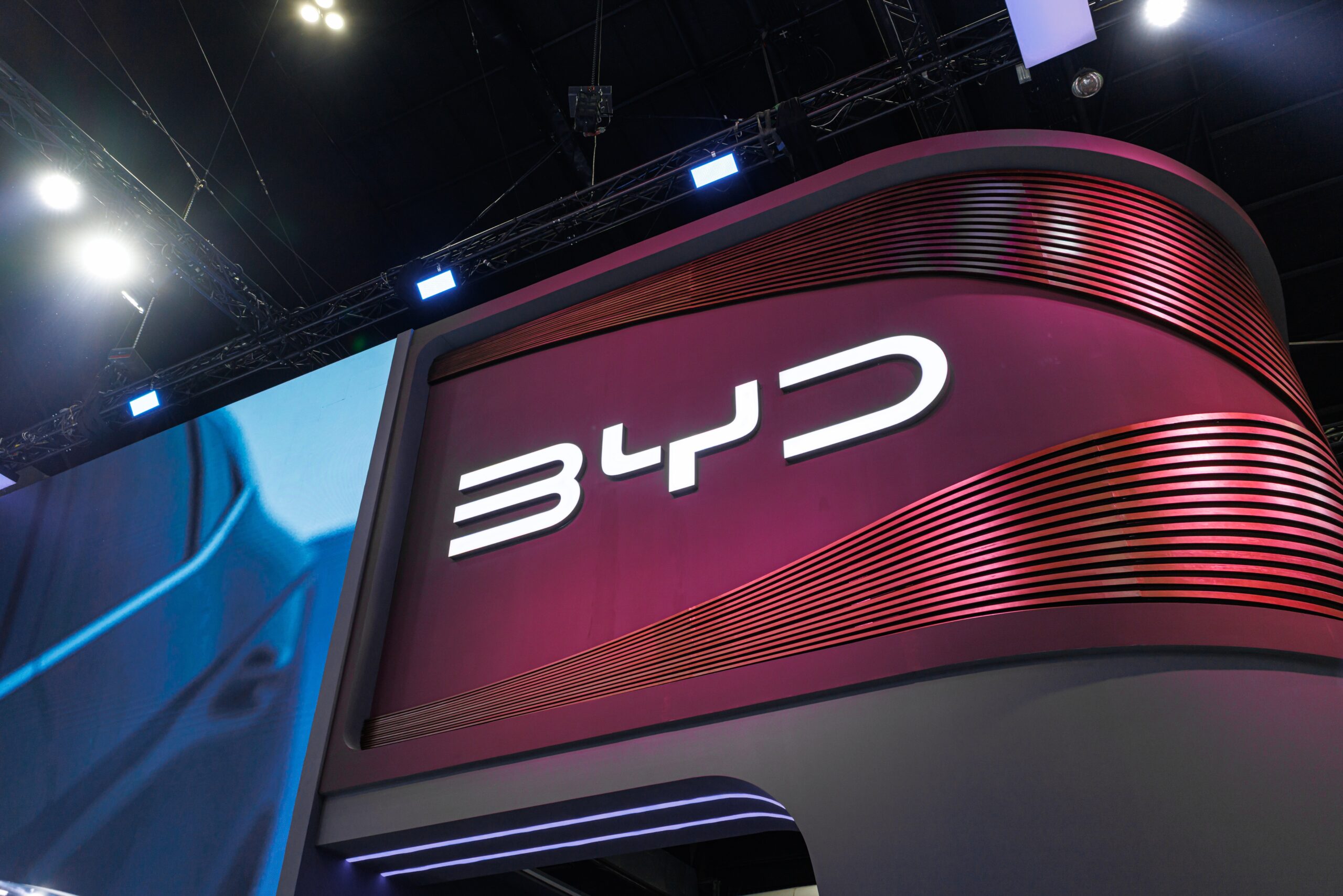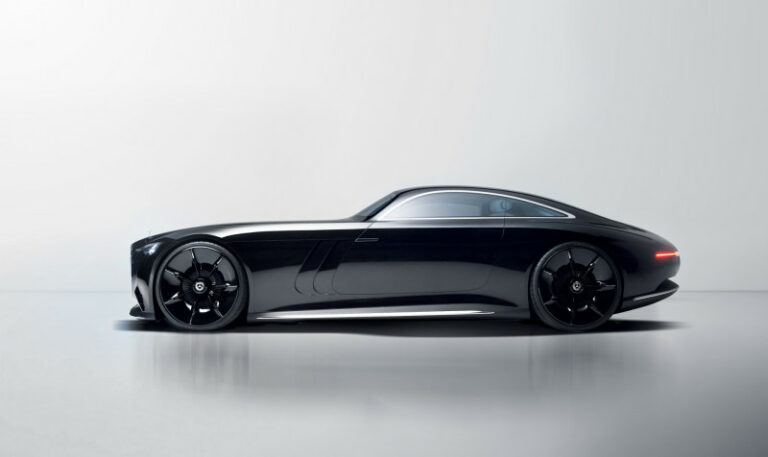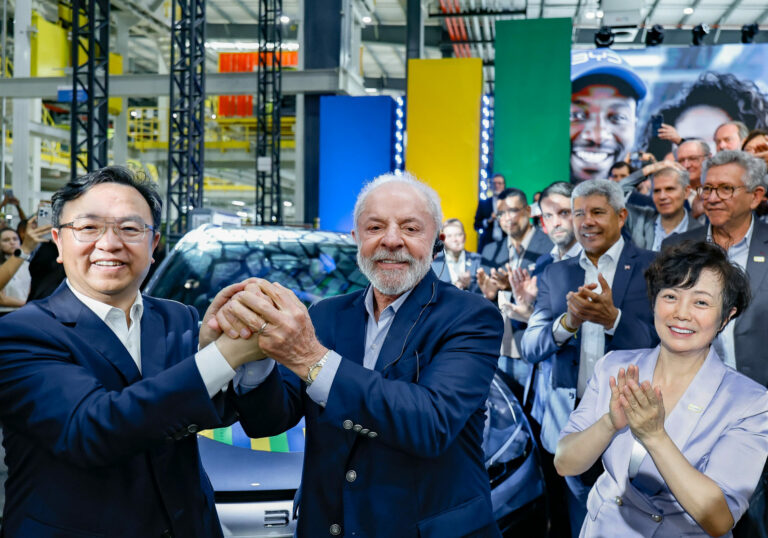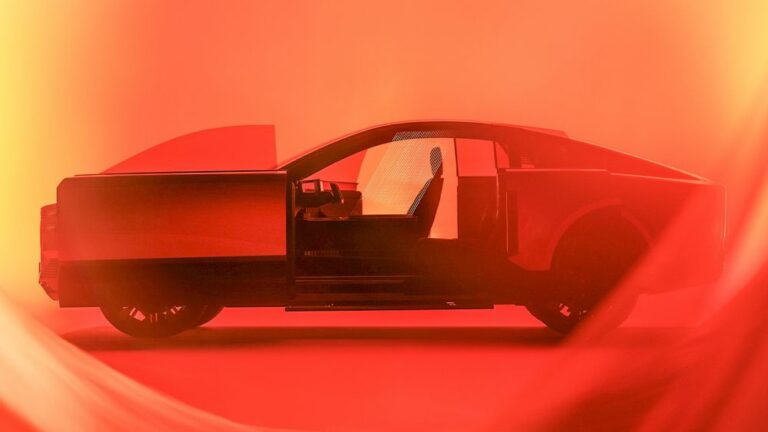The Chinese automaker BYD is planning to establish its third European factory in Spain, according to sources close to the matter cited by Reuters. Spain is reportedly the favourite compared to other European candidates.
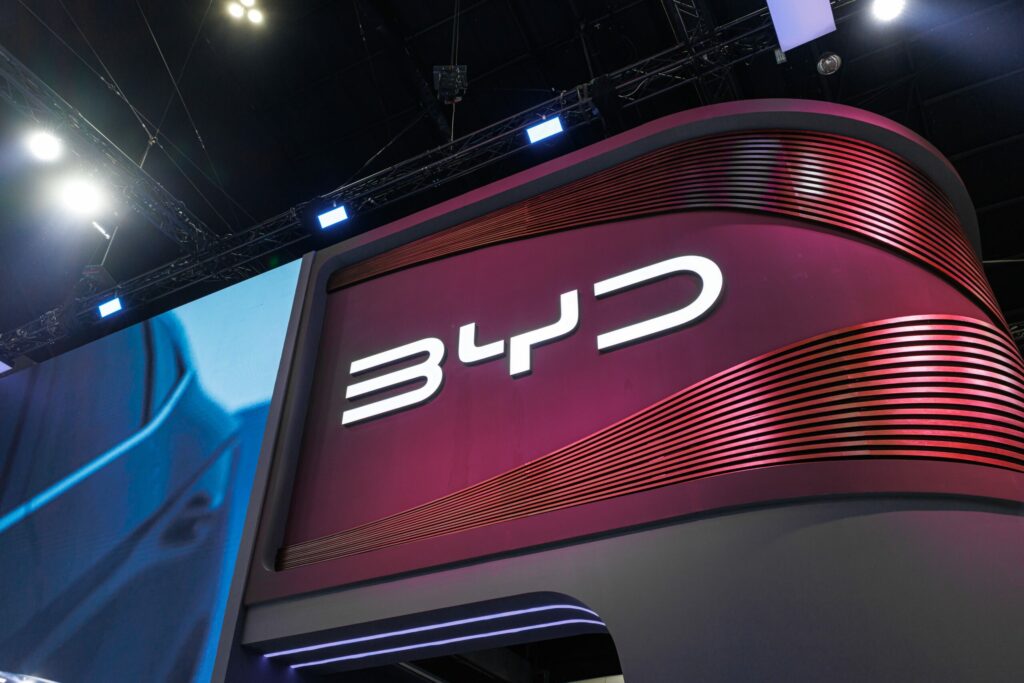
Strategic location
According to Reuters, this future factory would complement those already planned in Hungary and Turkey, and aligns with the Chinese giant’s aim to establish a long-term production presence in Europe. The goal behind this strategy is clear: as in Brazil, BYD wants to manufacture vehicles locally for the European market, reducing additional costs, avoiding customs barriers, and adapting to European regulatory requirements.
Why Spain?
While BYD considered other countries such as Germany, a source close to the matter, along with BYD’s national director for Spain and Portugal, Alberto De Aza, recently explained to Reuters why Spain would be an ideal location for BYD’s expansion in Europe.
- Spain has a qualified workforce of similar quality, but production costs are significantly lower than in France or Germany.
- The country already has an efficient logistics network, with ports and infrastructure enabling rapid distribution across Europe and worldwide.
- Since 2020, Spain has implemented an industrial policy supported by a €5 billion investment plan, according to Reuters, to attract electric mobility manufacturers.
- Spain and China have established strong diplomatic relations. Last year, Spain abstained in an EU vote on tariffs for Chinese-made electric vehicles.
- Most importantly, Spain’s energy is becoming increasingly “clean”, thanks to significant growth in solar and wind power.
All these factors make Spain a serious contender for BYD’s next European base.
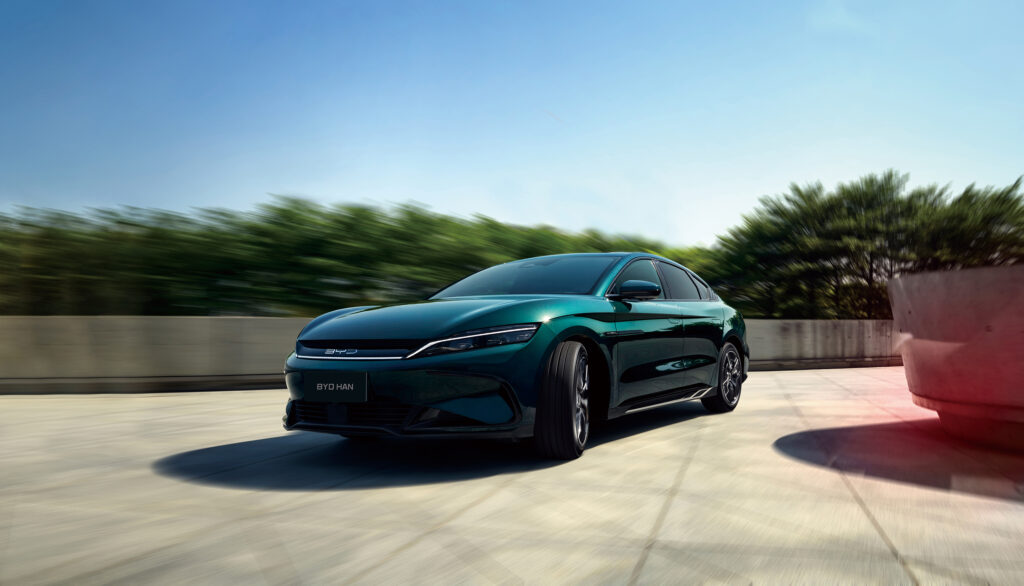
A well-oiled global expansion strategy
For over two years, BYD has been accelerating its global expansion. This includes Europe, where the company has a clear ambition: producing locally to strengthen its market share.
Currently, Spain is under discussion, but BYD is already building a factory in Szeged, Hungary, which is set to begin production in 2026, and another factory will open in Turkey next year.
BYD’s European presence is guided by several objectives: reducing import costs, design and delivery times, transportation risks, currency fluctuations, and trade barriers, especially amid stricter regulations and greater pressure in Europe. Establishing a base in Europe allows BYD to adapt more quickly to European standards and requirements.
Reuters reports that BYD aims for the majority of its vehicles sold in Europe to be locally produced within three years.
Growth to dominate
Since its founding in 2003, the Chinese brand has grown exponentially. BYD has been selling vehicles in Europe since 2020. The figures speak for themselves, showing the company’s spectacular growth on the continent.
- IEuropean sales have surged by 280% in the first eight months of 2025.
- In April 2025, BYD even surpassed Tesla in European sales of 100% electric cars (7,231 units versus 7,165 according to JATO Dynamics).
- In 2024, the brand sold nearly 57,000 vehicles in Europe, representing about 2.8% market share in the electric category.
- In August 2025, EU registrations nearly tripled year-on-year, reaching over 9,000 units in a single month.
These figures demonstrate how BYD could play a key role in Europe’s transition to fully electric vehicles by 2035.
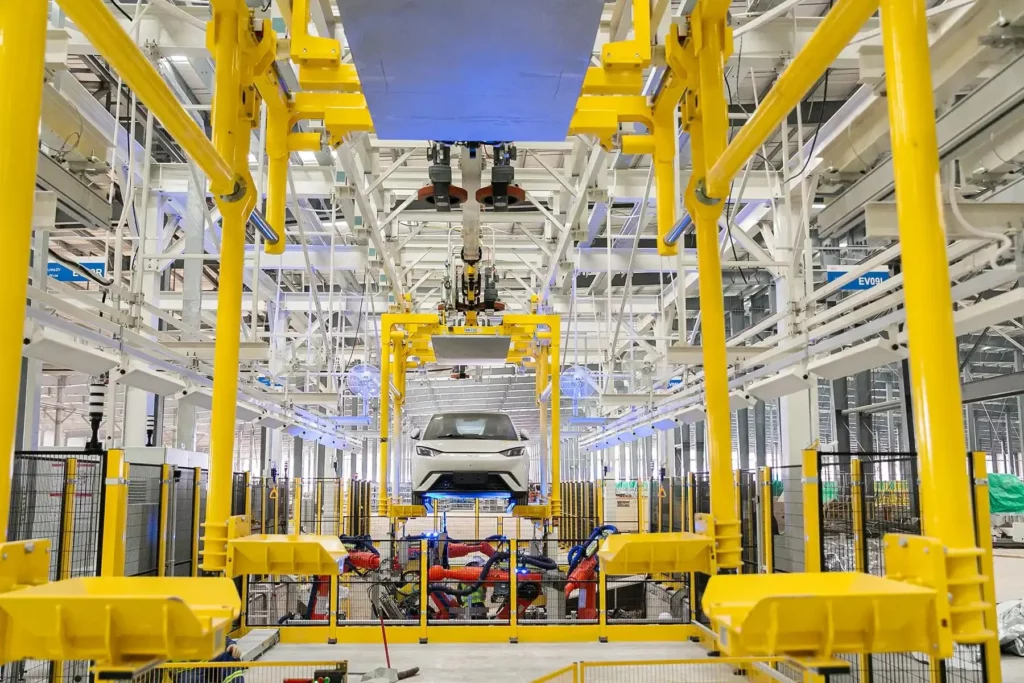
Another challenge for European automakers
The arrival of this third factory would strengthen BYD’s presence against European giants already under pressure. Producing locally could also intensify competition in the SUV and family car segments. Indeed, the Chinese brand offers high-quality cars at highly competitive prices, while European brands struggle to provide affordable models.
By establishing a base in Spain, BYD sends a strong signal to manufacturers, policymakers, and Europeans. This move shows the company’s long-term commitment to the European market. It remains to be seen whether European authorities will welcome this news given the current challenging trade environment.

